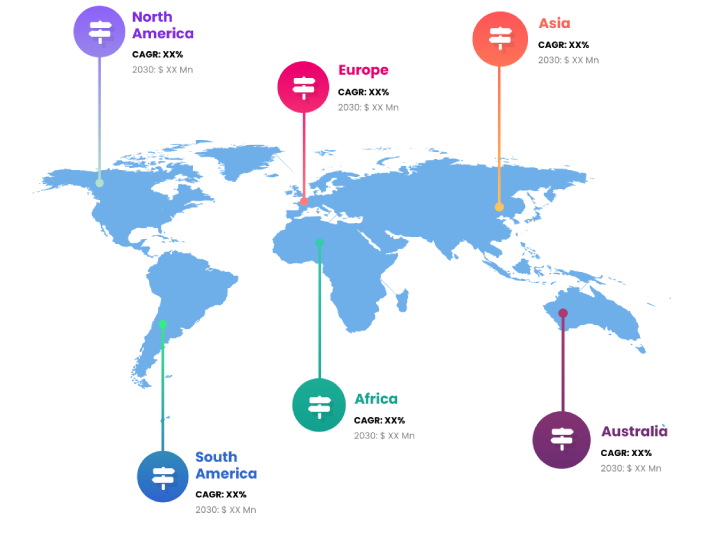
Due to supply chain disruptions, project delays, and insufficient funds for research and development, the COVID-19 pandemic has had a negative effect on the global fuel cell technology market. Because hydrogen-based systems necessitate a highly coordinated supply chain and substantial resources for demonstration, they would be particularly vulnerable to the effects of the pandemic on global supply networks.
The International Energy Agency reports that the current demand for hydrogen in the chemical, steel, and oil refining industries has been affected by the COVID-19 pandemic. The International Energy Agency predicts a 9% decline in gasoline usage, a 6% decline in diesel, and a 26% decline in jet fuel by 2020, with a 7% decline in demand for essential hydrogen-based compounds like methanol. It was anticipated that early 2020 would create a new sales milestone for hydrogen-based fuel-cell vehicles, and sales of these vehicles climbed in 2019.
The rising demand for electric vehicles, hybrid electric vehicles, and plug-in hybrid vehicles (PHVs) is a key factor propelling the global fuel cell technology market. There is a high demand for fuel cells due to the fast growing electric car sector. The government is also more interested in electric and plug-in hybrid vehicle usage due to the carbon emissions.
Decreased reliance on unconventional energy sources like oil and diesel is also contributing to the expansion of this sector. All throughout the globe, people are looking for fuel cells. Traditional petroleum products and oils have caused environmental problems due to their excessive emissions of CO2, CO, NOx, and SOx. Fuel cells provide an alternative to conventional and non-conventional energy sources by utilizing fossil fuels such as gasoline and diesel.
Significant investments have been made by prominent regional players in the fuel cell business. Fuel cell technology is receiving increased funding from China, Japan, the United States, the United Kingdom, and Germany. Energy utility investments are on the rise to keep up with demand. Today, clean energy is really necessary. Clean energy is superior to other energy sources in terms of dependability, sustainability, and efficiency. The leading market participants plan to invest an additional $39 million in the following years.
Investments of this magnitude are, hence, a key factor propelling the market. Another important factor propelling the industry is the widespread use of hydrogen fuel cell technology. When it comes to automotive energy, the hydrogen fuel cell is dependable and helpful. Market demand is being boosted by the introduction of the hydrogen cell. Additionally, the defense sector is witnessing remarkable improvement in the utilities and applications of UAVs. One product that is driving the fuel-cell technology industry is this portable power production device used in the defense sector. Demand and revenue rates will be greatly affected by all of these market drivers.
Hydrogen and methanol are the primary fuels for fuel cells. The catalyst and membrane type utilized in the fuel cell determine the operational requirements. A proton exchange membrane is used by some fuel cell technologies, whereas others rely on energy from pure hydrogen. Additionally, fuel-flexible cells are available, which provide convenience in any application. The fuel cell technology industry is very diverse. Additionally, pure hydrogen gas is not necessary for the operation of fuel cells including phosphoric, solid oxide, and acid fuel cells.
Report Coverage
Global Fuel Cell Technology research report categorizes the market for global based on various segments and regions, forecasts revenue growth, and analyzes trends in each submarket. Global Fuel Cell Technology report analyses the key growth drivers, opportunities, and challenges influencing the global market. Recent market developments and Fuel Cell Technology competitive strategies such as expansion, product launch and development, partnership, merger, and acquisition have been included to draw the competitive landscape in the market. The report strategically identifies and profiles the key Fuel Cell Technology market players and analyses their core competencies in each global market sub-segments.
| REPORT ATTRIBUTES | DETAILS |
|---|---|
| Study Period | 2017-2031 |
| Base Year | 2023 |
| Forecast Period | 2023-2031 |
| Historical Period | 2017-2021 |
| Unit | Value (USD Billion) |
| Key Companies Profiled | Fuel Cell Energy, Hydrogenics, Plug Power, Ballard Power Systems, Panasonic Corporation, Toshiba Corporation, Doosan Corporation, SFC energy, Plug Power, AFC energy |
| Segments Covered | • By Product |
| Customization Scope | Free report customization (equivalent to up to 3 analyst working days) with purchase. Addition or alteration to country, regional & segment scope |
Key Points Covered in the Report
- Market Revenue of Fuel Cell Technology Market from 2021 to 2031.
- Market Forecast for Fuel Cell Technology Market from 2021 to 2031.
- Regional Market Share and Revenue from 2021 to 2031.
- Country Market share within region from 2021 to 2031.
- Key Type and Application Revenue and forecast.
- Company Market Share Analysis, Fuel Cell Technology competitive scenario, ranking, and detailed company
profiles. - Market driver, restraints, and detailed COVID-19 impact on Fuel Cell Technology
Market
Competitive Environment:
The research provides an accurate study of the major organisations and companies operating in the global Fuel Cell Technology market, along with a comparative evaluation based on their product portfolios, corporate summaries, geographic reach, business plans, Fuel Cell Technology market shares in specific segments, and SWOT analyses. A detailed analysis of the firms' recent news and developments, such as product development, inventions, joint ventures, partnerships, mergers and acquisitions, strategic alliances, and other activities, is also included in the study. This makes it possible to assess the level of market competition as a whole.
List of Major Market Participants
Fuel Cell Energy, Hydrogenics, Plug Power, Ballard Power Systems, Panasonic Corporation, Toshiba Corporation, Doosan Corporation, SFC energy, Plug Power, AFC energy
Primary Target Market
- Market Players of Fuel Cell Technology
- Investors
- End-users
- Government Authorities
- Consulting And Research Firm
- Venture capitalists
- Third-party knowledge providers
- Value-Added Resellers (VARs)
Market Segment:
This study forecasts global, regional, and country revenue from 2019 to 2031. INFINITIVE DATA EXPERT has segmented the global Fuel Cell Technology market based on the below-mentioned segments:
Global Fuel Cell Technology Market, By Type
PEMFC
MCFC
SOFC
DMFC
PAF
Others
Global Fuel Cell Technology market, By Application
Stationary
Portable
Transportation
Global Fuel Cell Technology market, Regional Analysis
- Europe: Germany, Uk, France, Italy, Spain, Russia, Rest of Europe
- The Asia Pacific: China,Japan,India,South Korea,Australia,Rest of Asia Pacific
- South America: Brazil, Argentina, Rest of South America
- Middle East & Africa: UAE, Saudi Arabia, Qatar, South Africa, Rest of Middle East & Africa
You will get in-depth and extensive fuel cell technology market market research and competitor analysis for your business to help you develop more profound insights into the fuel cell technology market Market.
Through INFINITIVE Data Expert is a professional Market Research services, I will identify the fuel cell technology market market size, demand & opportunities, growth rate, and target audience with a comprehensive analysis of your competitors.



